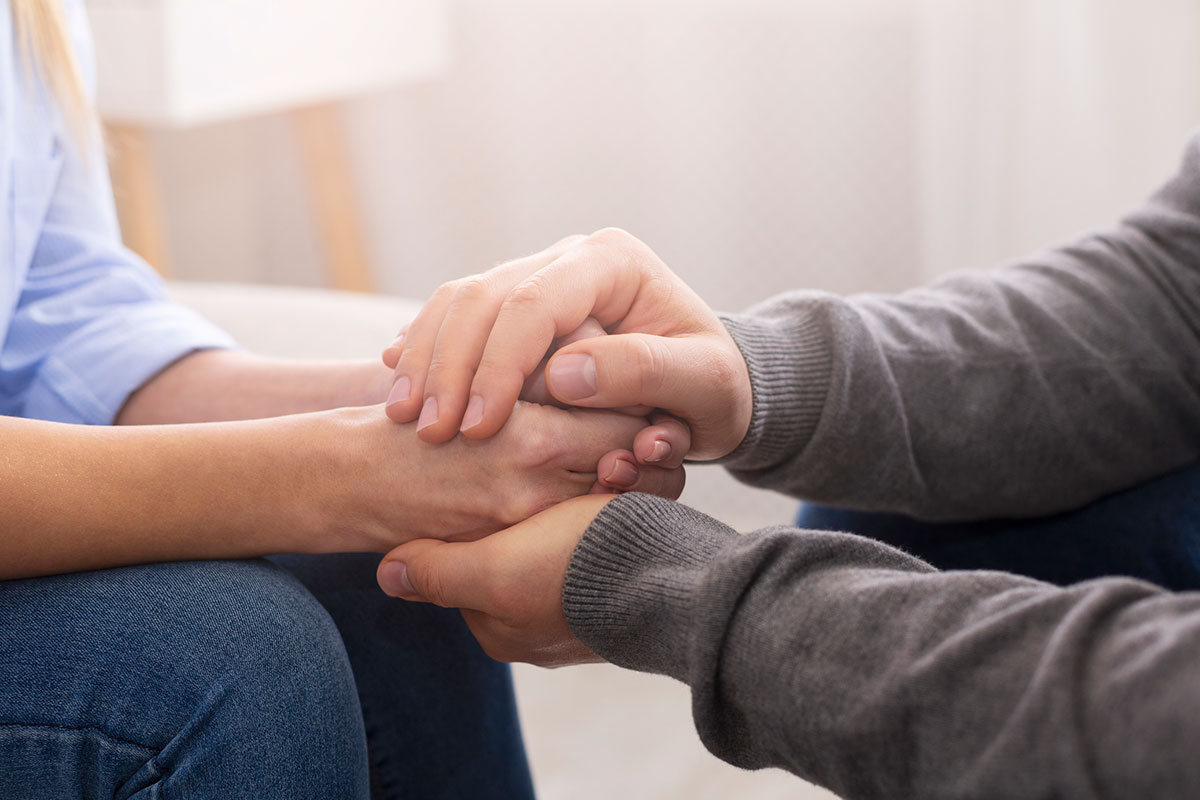Group and Individual Therapy
At Wildwood Recovery, we provide as part of our recovery program a time for both group and individual therapy sessions. During group therapy, you will be given the opportunity to learn that you are not alone in your addiction. As individuals share their problems and strategies for coping, you will likely find similarities to your own. Group therapy is an opportune time to release your inner most feelings in a setting that is conducive to healing. It is also a time to begin rebuilding interpersonal relationships and social skills.
Individual therapy sessions provide a setting in which you can reveal the intricate details of your addiction knowing your privacy is protected.
This is a vital concern for many clients in regards to family or work issues. We recognize the importance of confidentiality and assure you that our staff of professionals will work with you on your schedule to reach your goal of an addiction-free life.

Group Therapy
Group therapy is a fundamental component of addiction treatment and holds great importance for several reasons:

Supportive Environment
Group therapy provides a supportive and empathetic environment where individuals can connect with others who are facing similar challenges. This sense of belonging and understanding helps combat the isolation and stigma often associated with addiction. Being part of a group of individuals who share similar experiences can instill a sense of community and reduce feelings of loneliness.
Shared Experience and Validation
In group therapy, participants can share their personal experiences, struggles, and successes related to addiction and recovery. This sharing of experiences allows individuals to realize that they are not alone in their struggles, providing validation for their emotions and experiences. Hearing others’ stories can also offer new perspectives, insights, and hope, fostering a sense of solidarity and resilience.
Learning from Others
Group therapy offers opportunities for individuals to learn from one another. Participants can exchange practical advice, coping strategies, and techniques for overcoming challenges in recovery. They can also observe and learn from the progress and setbacks of others, gaining insights into the recovery process and identifying potential pitfalls to avoid.
Peer Support and Accountability
Group therapy provides a platform for peer support and accountability. Individuals can provide encouragement, feedback, and constructive criticism to their peers. This support helps individuals stay motivated, committed, and accountable to their recovery goals. By witnessing the progress of others in the group, individuals can be inspired and motivated to make positive changes in their own lives.
Skill Development
Group therapy sessions often incorporate various therapeutic techniques and exercises aimed at developing essential life and coping skills. These may include communication skills, assertiveness training, stress management techniques, problem-solving strategies, and relapse prevention skills. The group setting allows participants to practice these skills in a supportive and non-judgmental environment, enhancing their ability to apply them in real-life situations.
Increased Self-Awareness
Group therapy provides a reflective space for individuals to gain deeper self-awareness. Through active participation and feedback from group members and the therapist, individuals can gain insights into their thoughts, emotions, behaviors, and underlying issues contributing to their addiction. This increased self-awareness serves as a foundation for personal growth and change.
Social Learning and Role Modeling
Group therapy offers an opportunity for social learning and role modeling. Observing the progress and recovery of others in the group can inspire hope and provide a vision of what is possible. Positive role models within the group can demonstrate effective coping strategies, healthy communication patterns, and successful recovery trajectories, allowing participants to learn and emulate these behaviors.
Individual Therapy
Personalized Treatment
Individual therapy allows for personalized, one-on-one attention between the therapist and the individual seeking treatment. This personalized approach enables the therapist to tailor the treatment plan to address the specific needs, goals, and challenges of the individual. It provides an opportunity for in-depth exploration of underlying issues contributing to addiction and the development of personalized coping strategies.
Confidentiality and Privacy
Individual therapy offers a confidential and private setting where individuals can openly discuss their thoughts, feelings, and experiences related to addiction. This safe space encourages individuals to share sensitive and personal information without fear of judgment or disclosure. Confidentiality is a crucial aspect of building trust in the therapeutic relationship.

Comprehensive Assessment
Individual therapy sessions allow for comprehensive assessments of the individual’s mental health, history of substance use, and co-occurring disorders. Therapists can conduct thorough evaluations to understand the factors contributing to addiction, such as trauma, underlying mental health conditions, or environmental stressors. This assessment helps guide the treatment approach and ensures that underlying issues are addressed alongside addiction.
Emotional Support and Guidance
Individual therapy provides a supportive and empathetic environment where individuals can express their emotions, struggles, and successes openly. Therapists offer guidance, empathy, and non-judgmental support to individuals navigating the challenges of addiction recovery. They can help individuals process their emotions, explore underlying issues, and develop healthier coping mechanisms.
Skill Development
Individual therapy sessions focus on skill development, equipping individuals with practical tools to manage cravings, cope with stressors, and address underlying issues. Therapists may teach cognitive-behavioral techniques, mindfulness practices, stress reduction strategies, and effective communication skills. These skills are tailored to the individual’s unique circumstances and can empower them to make positive changes in their lives.
Relapse Prevention
Individual therapy plays a crucial role in relapse prevention. Therapists work collaboratively with individuals to identify triggers, develop relapse prevention strategies, and create personalized plans for managing high-risk situations. They can explore patterns of thinking and behavior that may contribute to relapse and provide guidance on how to navigate challenges and maintain sobriety.
Continuity and Long-Term Support
Individual therapy offers continuous support throughout the addiction recovery journey. It provides a consistent and ongoing therapeutic relationship that can extend beyond the initial stages of treatment. This continuity allows individuals to explore deeper issues, address relapse triggers as they arise, and maintain their progress in long-term recovery.